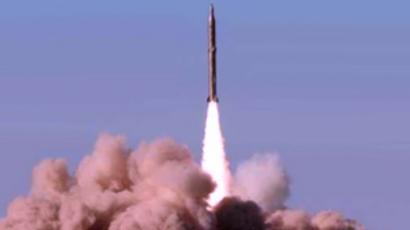US Senate panel approves START treaty
The Senate Foreign Relations Committee has resumed hearings on the START treaty before submitting it to the full Senate for final approval.
The committee approved the START treaty in a 14-4 vote, advancing the agreement for final ratification at the US Senate.
Moscow is hoping the committee vote will bring the US one step closer to completing the agreement, under which both countries will cut their nuclear arsenals by a third.
Although there is uncertainty over whether the full Senate will consider the treaty this year, the committee chairman, Senator John Kerry, expressed hope that the process could indeed be completed shortly.
“We hope this can get to the full Senate as rapidly as possibly. Our work is not done,” Senator John Kerry said. “The full US Senate has to now debate this and ratify it. It is our hope that it can happen quickly before the end of the year.”
He added that this treaty “will make America more secure, it will assist us in moving toward the goal of less nuclear threat, and for that reason we are proud of the action we took today.”
However, head of Russia’s State Duma Foreign Affairs Committee Konstantin Kosachev says US mid-term elections may hamper the process.
“The major problem is that this time the ratification process in the States coincides in time with the election campaign,” Kosachev said. “One third of the Senate is to be reelected, which means that many Senators consider this situation not its terms of whether this agreement is good or bad for the US, but in terms of how much it may contribute to their own electoral campaign.”
Meanwhile, Russian lawmakers have said they are ready to ratify the document, but want to sign off at the same time as Washington.
These five months of hearings have been a bumpy ride, and the resolution that the senators passed reflects that they put all their concerns into one package – among them, the tie between offensive and defensive weapons. Senators clarify: the treaty in no way is an obstacle for US plans to deploy defense systems.
American officials see it the same way.
“It commits us to continue to develop the ability to be able to protect our people and to have a robust missile defense system,” Kerry said.
But Russians do take that tie mentioned in the treaty quite seriously. They see the new START as an agreement based on equality and balance, and if that balance is shifted, or disturbed, they say they can pull out.
But some in Washington say the hurdles related to the ratification are not so much about the details of the treaty, but about Republicans trying to make a point to the Democrats.
“One of the problems is good old-fashioned red-meat politics,” said Richard Burt, US chair of Global Zero. “The Republicans just can’t resist this opportunity to say the Democrats are weak on national security. And that’s one of the real barriers that the Obama administration faces here. I have no doubt whatsoever, if we had a Republican administration, this treaty would be already ratified.”
The treaty is a chance to modernize and improve nuclear defense, thinks Gary Hart, former US senator and member of the US commission on policy towards Russia.
“If you replace warheads or delivery systems that are old and increasingly unstable with a newer generation, more secure technology, you are rather improving security rather than endangering it,” Hart said.
Ivan Eland, director of the center for peace and liberty at the Washington Independent Institute, says the arguments against the treaty carry very little weight.
“There’ve been other arguments made that the nuclear weapons labs will go into remission, that the treaty somehow precludes missile defense… which it really doesn’t. I think those are the two main domestic arguments here, and I don’t think they really have much water,” he said.
The paradox is that the number of Republicans who testified for the treaty outnumbers Democrats. On top of that, US military officials are unanimous in their support of the deal.













